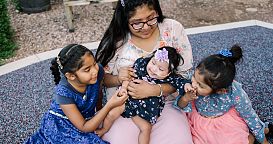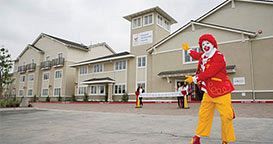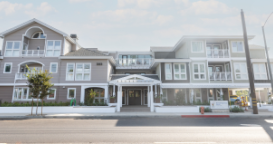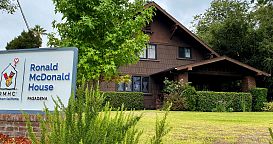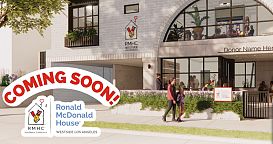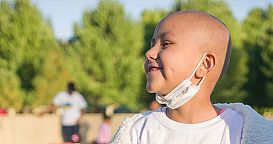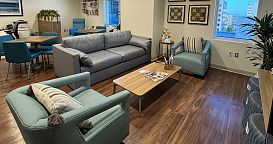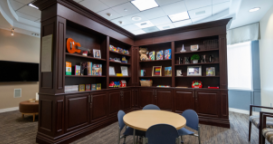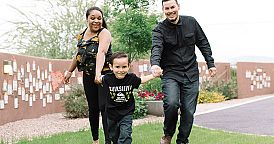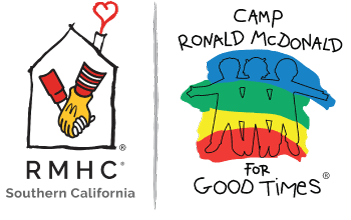Our Programs
-
What types of programs do you offer?
Camp is open to all families whose child currently has or had cancer.
- Patients Ages Infant – 12:
Family Camp is a 3 day, 2 night experience. Family Camps are offered in the spring and fall and are designed to support the whole family. Family Camp is open to all families who have a child who has or has had cancer, ages infant – 12 years old. Family Camps are offered in English and Spanish. - Patients and Siblings Ages 9 - high school graduation:
Summer Camp is a 6 day, 5 night experience that creates lifelong memories and friendships. We offer activities of a traditional camp experience, adapted to meet the needs of our campers. - Patients and Siblings Ages 16 - high school graduation:
Winter Camp is a 4 day, 3 night experience that promotes self-esteem, friendships, and fun for children who currently have or have had cancer and their siblings. - Patients Ages High School Graduation - 26:
Adolescent & Young Adult Camp is a 4 day, 3 night expereince that promotes community, connection, growth and healing for young adults who have or have had cancer.
Please click here to read more about our programs!
- Patients Ages Infant – 12:
-
How do I know that my child is ready for Camp?
As a parent, only you know what is in the best interest of your child. A general recommendation is that your child has a sleep away experience prior to attending their first summer session. This could be at friend's or family member's house. If you have questions about if your child is ready for Camp, please contact the Camp staff here.
-
What do other parents, doctors, and nurses say about Camp?
Find out more about what parents, campers, and medical professionals are saying by clicking here.
-
Where does my child stay during summer and winter Camp sessions?
Your child will stay in a cabin with 6 - 10 fellow campers of the same age and gender, along with 2 - 3 counselors.
-
Will my child be sleeping outside at any point during their Summer Camp session?
Sleeping outside under a star-filled sky creates wonderful camp memories. Many campers will have the opportunity to sleep outside one night during their stay at Camp. Our 13 - 15 year old campers will sleep out at our Outpost Village, while our 16 - 18 year old campers participate in an overnight backpack trip. All campers are reviewed by our Camp Doctor and Nurses to ensure they are able to participate.
-
How does my child get to Camp?
To best serve our campers and their families, we offer FREE round-trip bus transportation from several Southland locations. On your child’s Camp application, please indicate the location from which you would like us to pick-up and drop-off your child. Directions to the pick-up location and the times when you should plan to arrive at the location will be emailed to you with your confirmation.
We use luxury busses with trained and certified drivers, air conditioning and on-board bathrooms. Each bus will be supervised by our Camp Staff, with one staff member serving as the Bus Leader. Each Bus Leader has emergency supplies, contact information and training in emergency procedures to ensure the safest possible trip for your child’s initial experience of their Camp session.
-
Can I call my child while they are at Camp?
One of our goals at Camp is to help campers develop and experience a sense of independence. To this end, we discourage campers from calling home. One of our Camp policies is to ask Campers to be disconnected from their cell phone while at Camp. Therefore, we would appreciate you speaking with your child before Camp, encouraging them to write letters home and to expect messages from you. You can send a physical letter to your child or send them an email through the Camp staff. You will receive directions on how to do this at Camper drop-off.
If there is an emergency and you should need to speak with the Camp Ronald McDonald for Good Times® Staff, we can be contacted on site at (951) 659-4609.
-
How do I contact my child when they are at Camp?
Campers love to hear how much you miss them and that you hope they are having a great experience.
Send a letter or package: 2 or 3 days BEFORE YOUR CHILD LEAVES FOR CAMP, mail a letter or package. Mailing an item a few days before your child leaves for Camp is the best way to ensure it gets delivered before your child returns home from Camp.
Post office mail should be sent to:
(Your Child’s First & Last Name)
Camp Ronald McDonald for Good Times®
Post Office Box 35
Mountain Center, CA 92561-0035
Shipping a package (UPS, FedEx, etc.)
(Your Child’s First & Last Name)
Camp Ronald McDonald for Good Times®
56400 Apple Canyon Road
Mountain Center, CA 92561-0035
Please DO NOT send candy, gum or food. We provide ample meals and snacks at Camp. Food and candy cannot be kept in the camper cabins as these items may invite unwanted visitors (squirrels, mice and ants). Campers love to receive comic books, magazines, puzzle books and personalized letters from you. Please wait for your camper to get home to share less happy news, such as their goldfish dying.
Due to the short, 4-day weekend Winter Camp & AYA sessions, mail service is not available.Email messages can be sent to your child via our Camper Mail Box at [email protected]. At this time, we do not have the capability for campers to return email. We encourage all campers to write a letter home. You may want to provide them with a pad, stamps, pen and envelopes with your home address pre-written on them.
Camp Safety
-
Who watches my kids in the pool?
An American Red Cross certified lifeguard watches over our campers while they swim. Our lifeguards are trained in the emergency and rescue procedures specific to our Camp pool. Regular emergency procedure drills are practiced and documented by our Camp Director. In addition to our lifeguard, all of our cabin counselors are trained in how to assist the lifeguard in case of an emergency. On the first day of each session, campers participate in our pool safety orienation and swim skill evaluation so our staff can assess safe swimming ability.
-
Is the horseback riding safe?
Our horseback riding staff combined have over 50 years of equestrian experience with special need populations. Prior to each camp session our riding staff meets with the Camp Doctor and Camp Nurse to review every child’s ability and challenges. Our trained and experienced Head Wrangler and staff matches each rider with each horse to ensure a stable, safe and fun ride for all!
-
Is the Camp accredited?
C
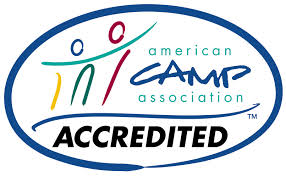 amp Ronald McDonald for Good Times® is accredited by the American Camp Association (ACA) and recognized for meeting and/or exceeding over 300 camp industry standards in safety, staff screening & training, healthcare and operations.
amp Ronald McDonald for Good Times® is accredited by the American Camp Association (ACA) and recognized for meeting and/or exceeding over 300 camp industry standards in safety, staff screening & training, healthcare and operations.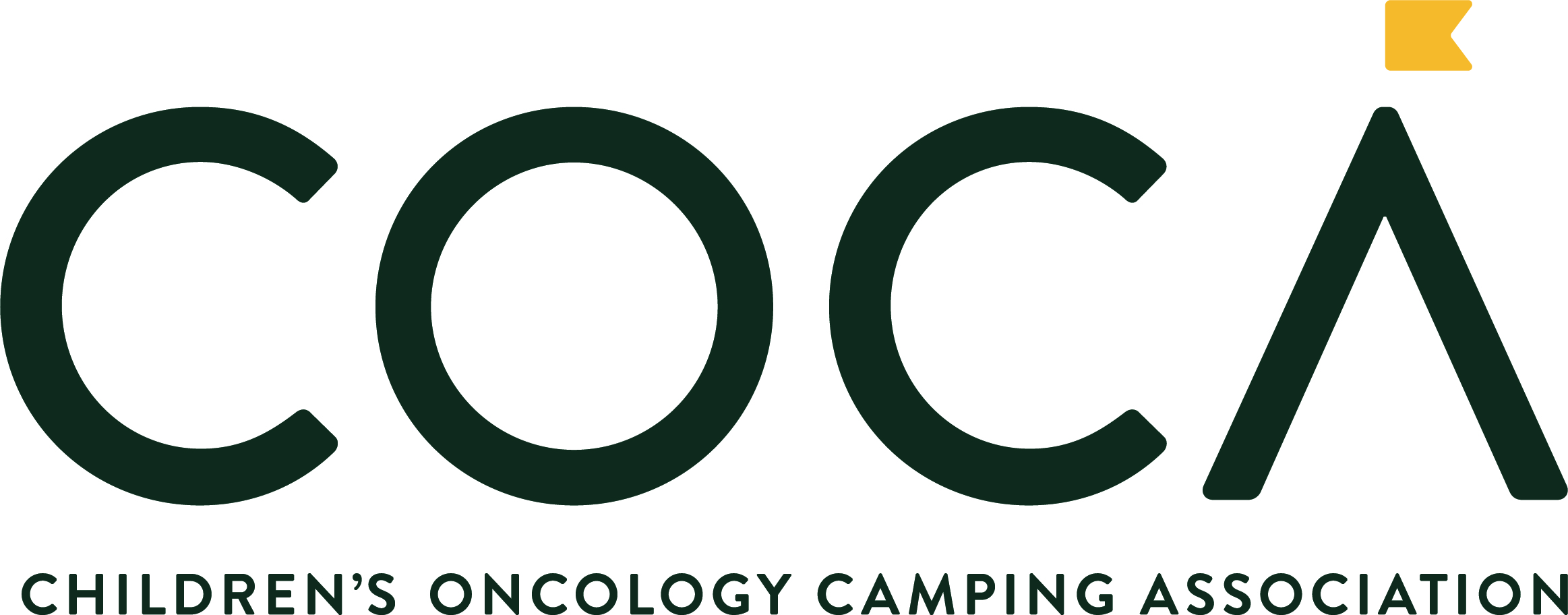
In addition, Camp Ronald McDonald for Good Times is a recognized "Golden Ribbon Camp" by the Children's Oncology Camp Association, International (COCA) by meeting association guidelines and standards for operating a pediatric oncology camp program.
-
Camp's Commitment to Safety
Campers flourish in a safe and nurturing environment. So the health, safety, and well-being of all our campers and staff is always our first priority at Camp Ronald McDonald for Good Times. We care for your kids like they are our own.
Camp Ronald McDonald for Good Times continually updates safety programs, training and practices with our staff and volunteers to promote a physically, emotionally and medically safe environment to thrive. Some areas of safety guidelines include:
Accreditation and Foundational Safety Practices:
Camp Health Care:
- Health Care Staff - Each session is staffed with an expert medical team. Every member of Camp’s medical team is a healthcare volunteer who donates time and expertise in support of Camp. Many of the medical staff volunteers return year after year. The medical staff includes a pediatric oncology doctor and a team of registered nurses. Frequently, our parents and campers find a doctor and/or nurse from their patient’s home hospital are members of our Camp healthcare team. This team supervises your child’s health and administers medical care and daily medications. They are available on-site, 24 hours a day, to attend to your child’s medical needs.
- Medical Facilities (Med Shed) - Camp is equipped with a state-of-the-art healthcare center, or what we call “The Med Shed,” specifically designed to serve the needs of our campers impacted by cancer. The Med Shed provides areas and equipment to support your child’s health needs while at Camp including an examination room, resting and sleeping areas, a medication dispensary and the Catheter Care Cabin. Should additional support be needed, transportation can be quickly arranged to nearby Loma Linda University Medical Center or the patient’s home hospital.
- Camper Care Information and Medications - All campers are asked to complete an online health history and medication form (hard copies are available) when registering for a session. In addition, each camper is required to have a Medical Examination Form completed by their primary care physician. Our medical staff carefully reviews every application and medical examination form before the session to ensure we have all the necessary equipment and support each child’s needs. To protect the privacy of our campers (patients, siblings and/or parents), Camp Ronald McDonald for Good Times® has adopted guidelines that restrict disclosure of personal health information to those who are responsible for medical treatment and care. This includes doctors, nurses, and Camp health personnel. Limited health information may be given to campers’ counselors to enable them to best support your child’s healthcare needs. We ask campers to bring all medications and catheter care supplies they will need during their stay at Camp. All medicines should be in their original bottles. Please include any additional care instructions that can help us provide your child with a happy and healthy stay. At Pick-Up Day Check-In, a Camp Staff member/Camp Nurse will verify and collect all medications you send for your child. Our nurses review your instructions for administering your child’s medication and care. Medications are dispensed daily at Camp, usually at meals or according to instructions.
Staff and Volunteer Screening and Training
- Qualifications and Screening - Our full-time camping professionals have a combined total of more than 30 years of camp management and programming experience. We are proud that our professional staff members are international leaders in the camping industry. Their expertise in working with a highly specialized population has been sought by dozens of worldwide organizations seeking to establish oncology and other special-needs camps. Our volunteer staff is composed of counselors from the ages of 19 to 70+ years. Each volunteer has passed an extensive interview and background screening process that includes education, work and reference verification, National Sex Offender Registry clearance and a criminal background check. All of our volunteers set goals and receive evaluations based on their performance during and after each Camp session. We are proud that 65% of our counselors return to Camp annually to create a special, personalized experience for your child.
- Training - Each volunteer counselor must complete a minimum of two days of training before they are allowed to work with campers. During this time, our staff receives training in many areas related to camp counseling, youth development, supporting children impacted by cancer, and emergency procedures. Examples of some of the topics in which our staff receive training include: establishing cabin and Camp rules, appropriate supervision, how to listen and what to listen for, how to be a positive role model, how to address undesired behaviors, health and wellness, and emergency procedures.
- Counselor to Camper Ratios - In camper cabins, there are always 2-3 counselors for every 10 campers. For the entire Camp, we have a 1 : 2 Counselor to Camper ration at every session.
Camp Health Care
-
Who provides the medical care at Camp?
Each session is staffed with an expert medical team. Every member of Camp’s medical team is a healthcare volunteer who donates time and expertise in support of Camp. Many of the medical staff volunteers return year after year. The medical staff includes a pediatric oncology doctor and a team of registered nurses. Frequently, our parents and campers find a doctor and/or nurse from their patient’s home hospital are members of our Camp healthcare team. This team supervises your child’s health and administers medical care and daily medications. They are available on-site, 24 hours a day, to attend to your child’s medical needs.
-
What are the medical care facilities like at Camp?
Camp is equipped with a state-of-the-art healthcare center, or what we call “The Med Shed,” specifically designed to serve the needs of our campers impacted by cancer. The Med Shed provides areas and equipment to support your child’s health needs while at Camp including an examination room, resting and sleeping areas, a medication dispensary and the Catheter Care Cabin. Should additional support be needed, transportation can be quickly arranged to nearby Loma Linda University Medical Center or the patient’s home hospital.
-
What medical information is needed about my child?
Upon signing up for a Camp session you will be asked to complete an online health history and medication form (hard copies are available).In addition, each camper is required to have a Medical Examination Form completed by their primary care physician. Our medical staff carefully reviews every application and medical examination form before the session to ensure we have all the necessary equipment and support for your child’s needs. Therefore, we need all applications with current medical information at least 3 WEEKS before your session. If we need any additional information, we will contact you immediately. To protect the privacy of our campers (patients, siblings and/or parents), Camp Ronald McDonald for Good Times® has adopted guidelines that restrict disclosure of personal health information to those who are responsible for medical treatment and care. This includes doctors, nurses, and Camp health personnel. Limited health information may be given to campers’ counselors to enable them to best support your child’s healthcare needs.
-
How should I send my child's medications with them to Camp?
Winter and Summer Youth Camp: We ask campers to bring all medications and catheter care supplies they will need during their stay at Camp. All medicines should be in their original bottles. Please include any additional care instructions that can help us provide your child with a happy and healthy stay. At Pick-Up Day Check-In, a Camp Staff member/Camp Nurse will verify and collect all medications you send for your child. Our nurses review your instructions for administering your child’s medication and care. Medications are dispensed daily at Camp, usually at meals or according to instructions.
Family Camp and Adolescent & Young Adult Camp: We ask participants to bring all medications and medical supplies they will need during their stay at Camp. We provide refrigeration for all medications that must be refrigerated. Participants are responsible for dispensing their own regular medications . Should participants need additional medications, our Camp Doctor and Camp Nurse are available.
-
What happens if there is a medical emergency at Camp?
Should a medical emergency occur while your child is at Camp, our medical staff will first assess the situation and take the most appropriate course of action. We will call to notify you of the situation, and we will discuss with you the steps we intend to take. Should a camper need advanced care, we can have patients driven or flown to the nearest healthcare facility appropraite for the situation. Loma Linda Medical Center is the closest pediatric oncology care center.
Our Staff and Counselors
-
What are the qualifications of the Camp Directors?
Our full-time camping professionals have a combined total of more than 30 years of camp management and programming experience. We are proud that our professional staff members are international leaders in the camping industry. Their expertise in working with a highly specialized population has been sought by dozens of worldwide organizations seeking to establish oncology and other special-needs camps.
-
Who are the counselors and how are they screened?
Our staff is composed of volunteers from the ages of 19 to 70+ years. Each volunteer has passed an extensive interview and background screening process that includes education, work and reference verification, National Sex Offender Registry clearance and a criminal background check. All of our volunteers set goals and receive evaluations based on their performance during and after each Camp session. We are proud that 65% of our counselors return to Camp annually to create a special, personalized experience for your child.
-
What type of training do the counselors receive?
Each volunteer counselor must complete a minimum of two days of training before they are introduced to your child. During this time, our staff receives training in many areas related to camp counseling, youth development, supporting children impacted by cancer, and emergency procedures. Examples of some of the topics in which our staff receive training include:
- Establishing cabin and Camp rules: Early in your child’s Camp experience, your child’s cabin counselors will spend time with their cabin to define appropriate behavior and establish cabin living rules. These rules are posted and begin a foundation to foster camper respect and cabin order.
- Limiting idle time: At Camp we have many activities to engage and involve your child’s interests and energy. Staff is also provided and trained in the use of “hip pocket” games and activities to keep your child supervised and involved in positive, fun play.
- Appropriate supervision: The care and safety of your child is the most important responsibility we have. Cabin staff is trained, supervised and held accountable for the constant and appropriate supervision of your child. We cannot be your child’s parent, but while at Camp, we can take care of them as if we were.
- How to listen and what to listen for: We train each staff member to spend quality time with each camper, to discover their likes and dislikes. Getting to know your child as an individual helps our campers and staff members develop trust, rapport and promotes communication. A calming and sensitive discussion with a counselor will frequently help alleviate campers’ fears and prevent any problems.
- Being a positive role model: Staff members’ behavior must epitomize the behavior they hope to see in their campers. Staff behavior sets the tone for acceptable camper behavior.
- Discipline intervention: The best way to handle discipline problems is to know what to do and what NOT TO DO should problems occur. Staff training includes positive intervention skills like conflict resolution techniques that promote communication and respect. In addition, training addresses staff interventions that are unacceptable (i.e., physical punishments, name-calling, cursing and abusive language, making threats, withholding meals, etc.)
- Heathcare and Wellness: Staff members recieve a comprenesive Health Care Orientation that includes information about pedatric oncology patients and siblings needs, cabin and activity staff roles in providing camper and staff wellness and health care, confidentiality of camper private health information and the roles and availability of "Med Shed" health care volunteers.
- Emergency Procedures: Staff members are instructed in emergency prevention steps and emergency roles and responsibilities.Some of the emergency procedures reviewed include: activity specific safety, wildfire, lightning strike, evacuation, active threat (intruder or shooter), injury and more.
-
How many counselors are in each cabin?
Winter and Summer Youth Camp: Each cabin has 2 - 3 trained adult counselors. The number of counselors increases depending on the needs of the campers in each cabin
Family Camp: For our Family Camp sessions, counselors, who have attended past summer youth sessions, serve as hosts and activity leaders to ensure both parents and children have a supportive and fun weekend retreat.
Volunteering
-
How can I become a volunteer at Camp?
Please click here for more information about the opportunities that are available.
Donations
-
How can I support Camp Ronald McDonald for Good Times?
You can support Camp Ronald McDonald for Good Times in a number of ways, and we could not operate without donations from individuals and groups. To learn more, visit our donation page from the menu above. You can also view our most current Wishlist by clicking here.
